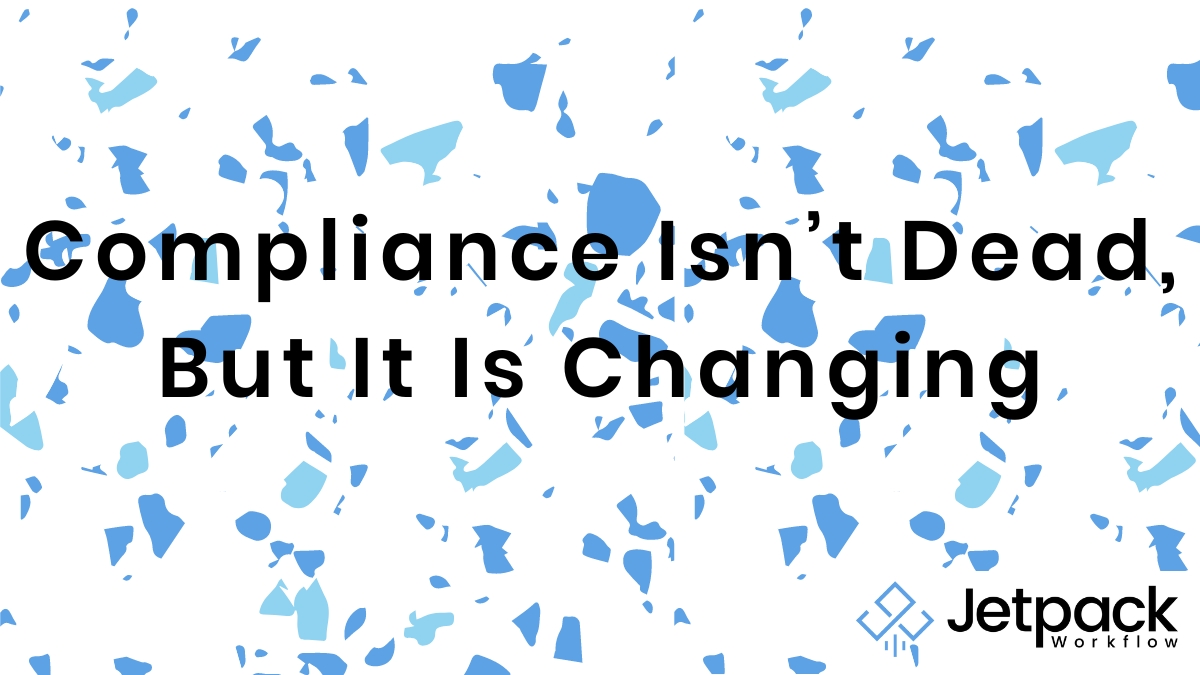Compliance Isn’t Dead, But It Is Changing

With new technologies and processes transforming accounting, some people have predicted that compliance has reached its end. But while the accounting industry is changing, accounting compliance—ensuring a business’s financial reporting is accurate and in line with laws and regulations—is not going away anytime soon.
As technology becomes more present in firms and businesses, some leaders are fearful that automation and other technological systems are destroying traditional accounting practices.
This anti-tech mindset is nonsense. Learning more about the role compliance plays for your firm can help business owners and leaders gain greater insights into their practices and the direction of their businesses.
Compliance In the Present And Future
Accounting firms will always have to do compliance work, which is helpful for:
• Accurate financial reporting
• Correctly following laws and regulations
• Maintaining your firm’s good reputation
• Defining your business: Why are you running this business? How are you leading your firm?
• Reducing errors
• Creating consistency
• Pushing firms to keep standards high
If you feel like there’s any part of your firm that can live (or thrive) without compliance work, it’s important to think again.
When you complete compliance work on time, you can use this information as a springboard to enable you to make future decisions for your business. Tax returns and profit and loss statements (PNLs) can help you understand where your business has been and how it’s progressing. Viewing your progress helps you identify when you’re going to eventually hit a critical point.
As you move forward with compliance work, keep this in mind: Leading with compliance is a dying art form. Compliance is important to your service mix, but it is not important to your value proposition; You still need to offer the services, but they shouldn’t define your brand.
Compliance And Your Clients
Although compliance assessments might make clients nervous, most genuinely want to know if they are running their businesses according to the right standards. These clients generally end up being your best clients because they care about their businesses, want to know if they’re doing something right or wrong, are open to constructive criticism, and are striving to be better business owners. Working with them can even indirectly help you practice and fine-tune your skills in compliance work.
Compliance is a great way to attract clients. Companies might first approach you seeking help for compliance needs, but working together gives you a chance to get to know each other better and provides the opportunity for interesting conversations that can lead to more in-depth work, resulting in you being seen and trusted as an advisor.
Many firm leaders feel like compliance is a bloody, low-margin battle. They don’t want to compete on price, so they might offer it at cost, or even at a loss, in order to attract new clients since it doesn’t require marketing or networking.
It’s a common mindset. But consider that the acquisition of your firm may be based on how competitive you are regarding compliance.
You can be thoughtful about compliance as a way to attract a broad lead base, but you can also do the opposite and seek to attract your dream clients by charging compliance servicesat a premium because of the niche knowledge and capabilities they require. This could lead to eventually upgrading packages for your existing clients, as well. If potential clients have reason to desire your compliance services, they will pay greater amounts to acquire them.
Doing More for Your Clients
We all want to do more for our best clients. So, take a moment to think more holistically about your services. How do you charge your clients? How do you offer the services in question?
This should give you some insight on whether it’s better to offer a premium offering with a fixed fee that you can do monthly or whether you should use compliance as a loss leader on the front end to attract a large client base.
From there, you can selectively curate and pull up upgrade packages for your ideal client at an acquisition cost. Because this strategy brings in new clients and doesn’t require spending ten grand a month on ads, you can afford to have attractive, initial-offer margins on the compliance end. Don’t believe the hype: Compliance isn’t dead. But compliance as a value proposition is a disappearing art form. Used strategically, it can be a springboard for bigger and better client relationships.





